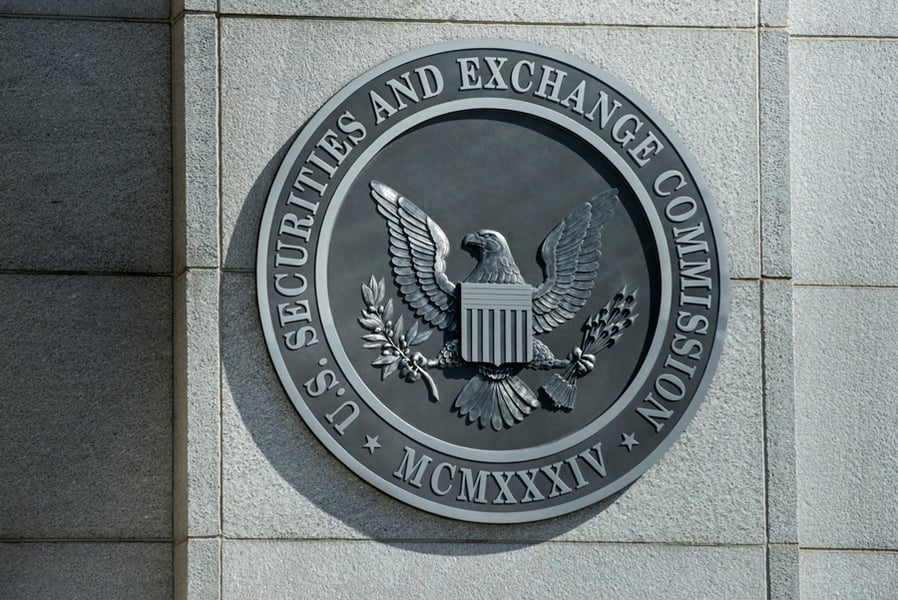Words matter. As the Securities and Exchange Commission collects comments on its proposal to revamp the standard of conduct for brokerage firms, officially known as
Regulation Best Interest, key terms — what they mean, how they are used, and possible new interpretations — take center stage.
Take the word "advisor" (or "adviser"), for example. Today, both fiduciary and non-fiduciary financial advice providers can use that moniker. The SEC proposes to change that going forward. Only registered investment advisers or investment adviser representatives — fiduciaries — would be able to use that title.
Restricting how the word "adviser" is used would be consistent with the findings of the U.S. 5th Circuit Court of Appeals when it overturned the DOL fiduciary rule. In that decision, the court said: "To the extent ... that some brokers and agents hold themselves out as advisors to induce a fiduciary-like trust and confidence, the solution is for an appropriately authorized agency to craft a rule addressing that circumstance, not to adopt an interpretation that deems the speech of a salesperson to be that of a fiduciary."
There are also lessons to be learned from the
5th Circuit's decision relating to when the term fiduciary applies, and when it doesn't. The 5th Circuit declared that "the Fiduciary Rule's overbreadth flows from DOL's concession that any financial services or insurance salesman who lacks a relationship of trust and confidence with his client can nonetheless be deemed a fiduciary."
In other words, a relationship of trust and confidence, rather than merely a sales relationship, is necessary to hold an advice provider accountable as a fiduciary. More bluntly, the court said: "Transforming sales pitches into the recommendations of a trusted adviser mixes apples and oranges."
While RIA obligations would remain as they are, Regulation Best Interest would establish a new conduct standard for broker-dealers that provide investment recommendations to retail customers. That new standard would be higher than the established suitability standard but stop short of requiring fiduciary accountability. To differentiate the existing standard for RIAs from the new one for brokers, the SEC proposes to reinterpret "best interest" in non-fiduciary terms for broker-dealers. The words "fiduciary" and "loyalty," which have long been part of the lexicon associated with "best interest," are nowhere to be found in the enhanced suitability standard now under consideration.
Speaking at an industry conference last month, SEC Chairman Jay Clayton
explained that the agency dropped the fiduciary label to avoid confusion between the obligations of brokers and investment advisers.
"I thought calling them both fiduciaries and then dividing them would not make it clear [to investors] that the relationship models are different," Mr. Clayton said.
Two forms of fiduciary would be confusing; however, the same problem arises from creating a second, non-fiduciary version of "best interest." The difference between the established fiduciary and new non-fiduciary versions is subtle but impactful.
Fiduciary best interest is straightforward; it requires the interests of clients to be placed first, and at all times. The proposed non-fiduciary form of best interest is more nuanced and episodic. Specifically, Regulation Best Interest creates obligations to "act in the retail customer's best interest at the time a recommendation is made and without placing the financial or other interest of the broker-dealer or natural person who is an associated person making the recommendation ahead of the interest of the retail customer."
It is unclear why the SEC is proposing to co-opt the term "best interest" from the realm of fiduciary advisers rather than build upon the suitability standard that currently applies to brokers.
The general principles underlying Finra's Rule 2111 on suitability are as follows: "Implicit in all member and associated person relationships with customers and others is the fundamental responsibility for fair dealing. Sales efforts must therefore be undertaken only on a basis that can be judged as being within the ethical standards of Finra rules, with particular emphasis on the requirement to deal fairly with the public. The suitability rule is fundamental to fair dealing and is intended to promote ethical sales practices and high standards of professional conduct."
SEC commissioner Hester Peirce said at the time Regulation Best Interest was released: "[T]he rule text is not sufficiently clear about what the Best Interest standard is and how it relates to existing broker obligations. It would be better to acknowledge that we are imposing a suitability-plus standard and explain what we mean by the 'plus.'"
As Mr. Clayton said, the relationship models and obligations of brokers and investment advisers are different. Brokerage services are sales relationships governed by high standards of fair dealing, while investment advisory services are relationships of trust and confidence governed by a higher fiduciary standard. These words are missing from the new proposed Client Relationship Summary, Form CRS, which is to be provided to all retail clients; they should be added.
(More:
SEC advice rule faces arduous journey)
Blaine F. Aikin is executive chairman of fi360 Inc.







